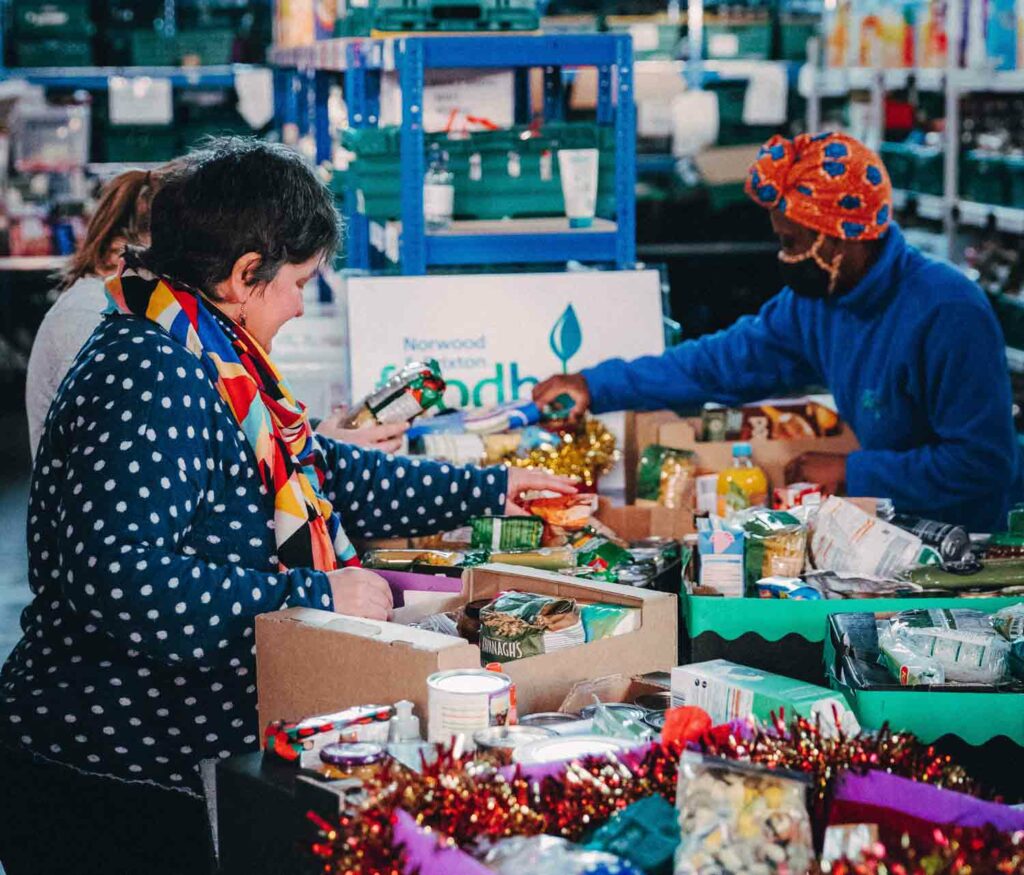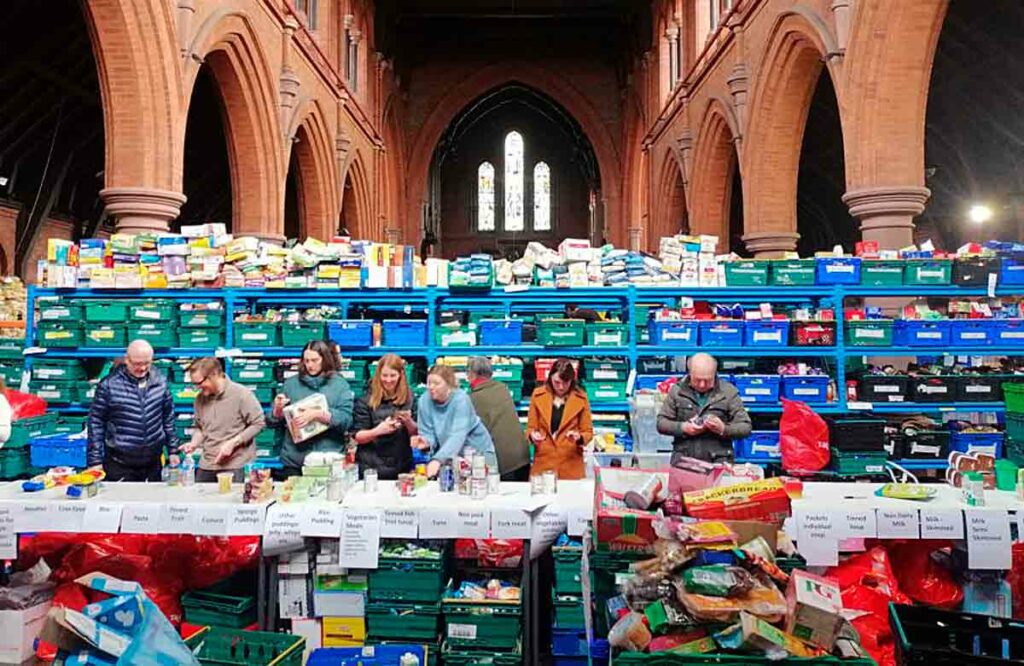
London food banks affiliated to the Trussell Trust charity, including the Norwood and Brixton foodbank, distributed 30% more emergency food parcels between April and September this year than last year.
More than 76,000 parcels were provided to support 32,400 children across the city. Parcels were distributed from 133 locations operating in 28 local authorities.
The charity is calling on the government to use its autumn financial statement on 22 November, to do more to protect households on the lowest incomes.
Figures released today (8 November) by the Ttrust show that 213,383 emergency food parcels were provided to people between April and September by food banks in the charity’s network in London.
This is a 30% increase over the same period in 2022.
In Lambeth, a total of 12,460 emergency parcels were distributed between 1 April and 30 September this year, compared to 10,495 over the same period last year (19.7%).
Figures for adults were 8,062 this year, 6,674 last year (20.8% increase); and, for children, 4,398 this year and 3,821 (15.1% increase) last year.
Low incomes – especially resulting from debt, health conditions and issues with social security payments such as delays or sanctions – were the main reasons people were left with no option but to turn to a food bank for help.
Some 76,052 food parcels were provided for 32,408 children living in families that could not afford the essentials.
This is an 25% increase compared to the same period last year, reflecting the continuing rise in need for the support provided by food banks, the trust said.
Its new data also reveal that 65% of all the parcels provided by Trussell Trust food banks in London between April and September this year were for families with children.
The charity said an “alarming” 44,662 people in London had needed to use a food bank for the first time in the past six months, and warned that food banks are at “breaking point” as more and more people in communities across the UK find themselves unable afford the essentials.
The trusst said the situation is unlikely to change in the coming months with this stark new data leading it to forecast that food banks in their network will distribute more than a million emergency food parcels between December 2023 and February 2024 – the equivalent of providing a parcel every eight seconds this winter.
Jacob Forman, director at Epping foodbank, said it is seeing a 189% rise in usage compared to before the pandemic. “This has put a tremendous strain on our operations, and volunteers leave every shift exhausted from the high workload,” he said.
“Because of this, we are in the process of increasing staffing levels and moving to a bigger warehouse so that we can continue to keep up with the rising numbers. We’ve also had to open new hubs to spread the load more evenly.
“Luckily, we have a truly incredible volunteer core, made up of people that are determined that no one should ever have to go without the essentials.”

Trussell Trust chief executive Emma Revie said: “These statistics are extremely alarming. An increasing number of children are growing up in families facing hunger, forced to turn to food banks to survive.
“A generation is growing up believing that it’s normal to see a food bank in every community. This is not right.
“Rising hunger and hardship have devastating consequences for individuals and our communities, damage the nation’s health and hold back our economy.
“People in work, as well as people who cannot work, are increasingly being pushed into debt and forced to turn to a food bank to survive.
“That’s why the UK government must build on its work to protect people from increasingly severe hardship and commit to putting an Essentials Guarantee into legislation, to embed in our social security system the widely supported principle that, at a minimum, Universal Credit should protect people from going without essentials.
“We recognise this change cannot happen overnight, which is why we are also calling on the government to urgently confirm in the Autumn Statement that benefits will rise in line with inflation next April, and to reduce the burden of debt deductions which drive unacceptable levels of hardship.”
The Trussell Trust is encouraging people to show their support for people facing hardship by signing a petition urging UK political party leaders to support the introduction of an Essentials Guarantee to ensure that the basic rate of University Credit at least covers life’s essentials, such as food and bills. Find out more: Guarantee our essentials – The Trussell Trust
In the mid-year period of 2023/24 (1 April – 30 September inclusive) these parcels were distributed from 133 locations operating in 28 local authorities across London.
An “emergency food parcel” is typically is a three-day parcel containing emergency food for one person. During the current crisis, food banks have also been distributing seven-day parcels.
Trussell Trust combined both three-day and seven-day parcels together to report the total number of emergency food parcels that were distributed.
Figures from the Trussell Trust network do not tell the whole story of food bank use across the UK. The Independent Food Aid Network (IFAN) has identified at least 1,172 independent foodbanks while there are also Salvation Army food banks as well as foodbanks run from schools and hospitals.
There are also thousands of other food aid providers including soup kitchens and social supermarkets.
The Trussel Trust network of food banks is supported by almost 12,000 churches, as well as many community groups, local businesses, schools and more than 28,000 dedicated volunteers.







